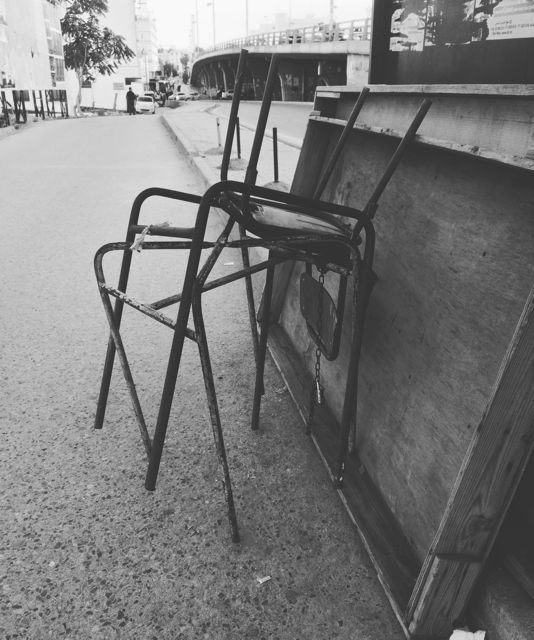The throne (sarîr), the chair (minbar, takht), the armchair (kursî) are pieces of wood put together or a step (used as a seat), in order for the king to sit above his courtesans and for them not to be at the same height. […] However, a kings only steps on to a throne once he has enough pageantry, strength and wealth. Originally, the Bedouins didn’t even consider it.
The first Muslim to have sat on a throne was Mu’âwiya : he argued it was because of his body weight.
Ibn Khaldûn , Al – Muqaddima 1377
Seating above the ground is not something we often question, but what Ibn Khaldûn tells us is that there is more to it than its convenience. The chair is part of a wider state of body and mind.
In Ibn Khaldûn ‘s work mankind rather than evolving in one direction is in a loop between two opposite poles. On one side is the figure of the nomadic Bedouin who uses his own strength to protect his interests and provide for himself and his family. On the other end is the sedentary man weakened by his wealth and education needing the state to protect his assets and foster his lifestyle.
The comparison between the two archetypes makes an interesting reading of the body language. The Bedouin is unsettled while the sedentary is static. One is standing on his legs but the other is supported effortlessly above ground sitting on a chair. One is contemplating the world while the other is acting upon it. This might well be a self-analysis of the great Ibn Khaldûn himself. He was both the resilient nomadic and cultured sedentary. At a time when power was changing hands at a fast past Ibn Khaldûn was always on the move, making enemies and patrons on all sides of the Mediterranean. As well as being a well averse politician he is one of the most famous scholar of the 14th century, still regarded today as the founding fathers of sociology.
Part of the sociological analysis of Ibn Khaldûn is the rise and falls of empires and civilisations.
The aim of civilisation is culture and wealth. Once this goal is achieved, civilisation declines, following the same patterns as leaving creatures.
What Ibn Khaldûn says is that civilisation shouldn’t be regarded as the highest achievement of mankind but merely as the latest stage of a cycle that will eventually repeat itself. Culture and wealth in Ibn Khaldûn’s view can be overlooked underestimating the value of primal instincts, which can be of survival necessity in a situation of crisis. Ibn Khaldûn is even more abrupt in his judgement stating that wealth and pleasure if abundant are a source of corruption eventually ending up in self-destructing.
The chair or the throne in this context becomes a symbol of the sedentary man waiting helplessly for the fall.




























































































